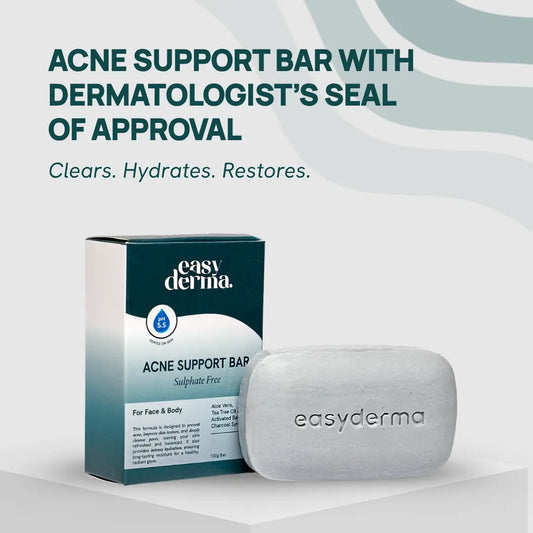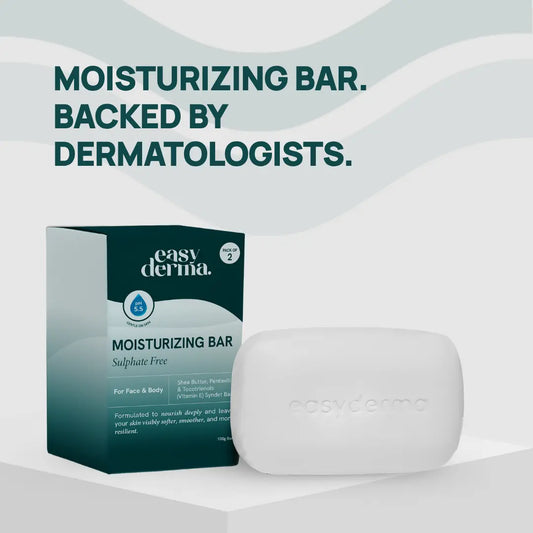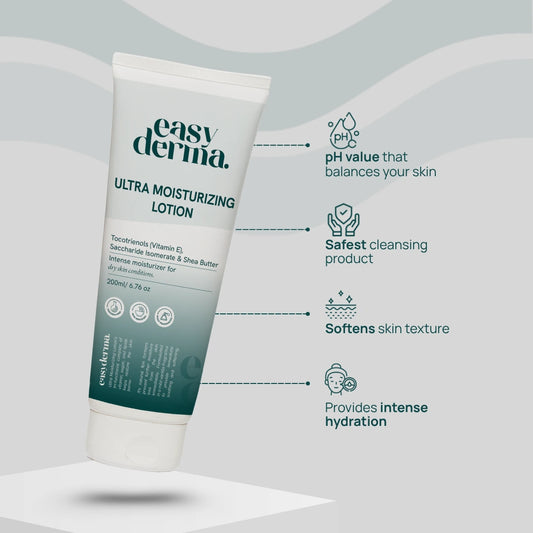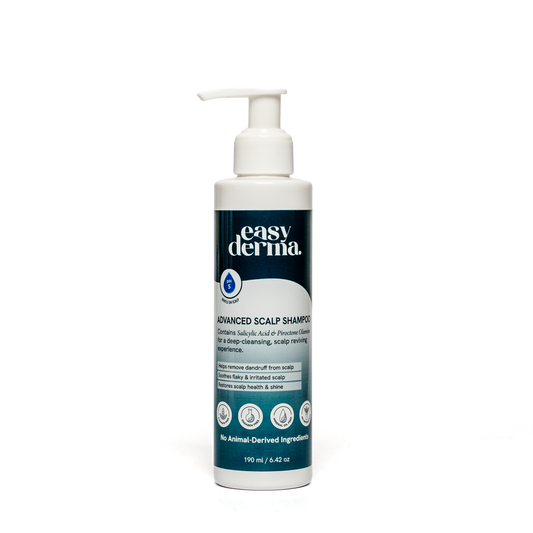Your scalp deserves the same attention as your skin. When fungal infections strike, they can cause intense discomfort, embarrassing flaking, and even hair loss. Understanding antifungal scalp treatment options empowers you to take control of your scalp health and restore confidence in your hair care routine.
Understanding Scalp Fungal Infections
Scalp fungal infections happen when fungi penetrate hair follicles or compromised skin on the head. Despite being commonly called "ringworm," these infections have nothing to do with worms. The medical term for the most prevalent scalp fungal infection is tinea capitis, also known as scalp ringworm.
This condition primarily affects children between ages 3 and 14, though it can affect anyone. After puberty, natural scalp oils provide some protective benefits against these fungi, which explains why infections become less common in adults.
The fungi responsible for these infections thrive in warm, moist environments. Conditions that promote fungal growth include hot and humid climates, certain personal grooming products containing harsh chemicals, small scalp cuts that provide entry points, and existing skin conditions. Once established, these fungi invade the hair shaft, potentially causing various symptoms depending on the infection type and your body's immune response.
Warning Signs Your Scalp Needs Antifungal Treatment
Recognising early symptoms helps you seek timely antifungal scalp treatment before the condition worsens. Here are the key warning signs:
Persistent Itching and Flaking
An intensely itchy scalp often serves as the first sign of a fungal infection. The constant urge to scratch can be overwhelming as fungi colonise your skin. White, flaky scales typically develop and shed from the scalp, resembling severe dandruff but with greater intensity.
These flakes vary in size and texture, sometimes appearing as fine powder and other times as thicker scales. The itchiness can become so severe that it disrupts daily activities and sleep patterns, signalling the need for professional antifungal scalp treatment.
Visible Redness and Inflammation
Scalp fungal infections frequently cause visible redness and inflammation, with affected areas appearing as red or purple patches of various shapes. In darker skin tones, these patches might look brown or greyish instead of red. The skin becomes noticeably swollen and inflamed as your body attempts to fight the infection. These patches might gradually expand if left untreated.
Hair Thinning and Breakage
As fungi invade hair follicles and shafts, they weaken the hair structure, leading to brittle, fragile hair that breaks easily near or at the scalp. Circular bald patches may develop where the infection is most severe. Many people notice small black dots within these patches, which are broken hair shafts stuck in the follicles. Without proper antifungal scalp treatment, this hair loss can sometimes become permanent.
Scalp Tenderness and Pain
When infected with fungi, your scalp often becomes painful and tender to touch. This tenderness results from inflammation beneath the skin and can make even gentle brushing uncomfortable. The pain may intensify as the infection progresses or if secondary bacterial infections develop.
Crusty Patches and Pus-Filled Sores
In severe cases, fungal infections can develop into kerions—painful, pus-filled abscesses that feel soft or boggy to touch. These raised swellings may drain pus and form thick yellow crusts. Some infections produce white or yellow greasy patches or small white pimples around hair follicles.

How Scalp Fungal Infections Spread
Understanding transmission routes helps you prevent reinfection during and after antifungal scalp treatment.
Person-to-person transmission happens through direct contact or sharing items like towels, combs and brushes. Additionally, pets and farm animals carrying fungi can infect humans. Fungal spores can also travel through the air from infected individuals, making these infections highly contagious, especially among children.
Your child can get tinea capitis from contact with infected people, animals and soil, or by using objects and touching surfaces that harbour the fungus. This widespread transmission potential makes hygiene practices crucial alongside any antifungal scalp treatment regimen.
Risk Factors for Scalp Fungal Infections
Several factors increase vulnerability to scalp fungal infections:
- Living in hot, humid climates that create ideal fungal growth conditions
- Sharing personal items like towels, hairbrushes, combs, and hats
- Having minor scalp injuries, cuts, or existing skin conditions
- Using hair products with harsh chemicals that disrupt scalp balance
- Poor hygiene habits or infrequent washing
- Excessive sweating that creates moisture on the scalp
- Weakened immune systems due to conditions such as diabetes or medications that suppress immunity
- Taking antibiotics that disturb the scalp's natural balance of bacteria and yeast
Children are particularly susceptible to tinea capitis, whereas adults more commonly experience yeast-based infections. Pregnant women and those undergoing cancer treatments also show increased vulnerability.
Professional Antifungal Scalp Treatment Options
Treating scalp fungal infections requires a targeted approach with proven medications. Unlike common dandruff, these infections need specific antifungal agents that penetrate the hair shaft where fungi hide.
Oral Antifungal Medications
Doctors typically prescribe oral antifungal medications as the primary treatment for scalp fungal infections, as these medicines work from inside the body to eliminate the infection.
Griseofulvin has long been the first-choice treatment, usually requiring an 8-12 week course to clear the infection entirely. This medication has proven effectiveness but requires patience and consistency.
Terbinafine offers another effective option, generally needing only a four-week course. Other medications like itraconazole and Fluconazole might be prescribed in specific instances based on the fungal species and infection severity.
The treatment duration can range from 4 to 8 weeks depending on the medication chosen. It's crucial to complete the entire course even after symptoms improve to prevent recurrence.
Please keep in mind that the above drugs mentioned are not to be consumed without a prescription.
Topical Antifungal Treatments
While topical treatments alone cannot cure scalp fungal infections, they play an important supporting role in comprehensive antifungal scalp treatment plans. Your healthcare provider may recommend an antifungal shampoo, foam or ointment to reduce surface fungi and prevent spreading.
Products containing ingredients such as ketoconazole, selenium sulphide, zinc pyrithione, and terbinafine help clear fungi from the scalp surface. These topical agents work best when combined with oral medications for complete treatment.
Supporting Your Antifungal Scalp Treatment with Proper Scalp Care
Maintaining optimal scalp health during and after antifungal scalp treatment accelerates recovery and prevents recurrence. A consistent, gentle cleansing routine creates an environment where fungi cannot thrive.

The Role of Specialised Shampoos
For those managing scalp concerns, choosing the right cleansing products makes a significant difference. The Easyderma Advanced Scalp Shampoo is Dermatologist Trusted and specifically formulated for scalp health. This treatment-oriented formula contains Salicylic Acid, which helps maintain scalp cleanliness, along with Piroctone Olamine and Saccharide Isomerate (Vegan HA Booster) that support scalp hydration.
The Advanced Scalp Shampoo is sulphate free, making it gentle enough for regular use while providing the anti-dandruff and anti-fungal support that your scalp needs. Its hydrating properties help maintain the scalp's natural moisture balance, which is essential during antifungal scalp treatment.
Gentle Cleansing Practices
Use antifungal shampoos and massage the scalp gently for 3-5 minutes to allow the product to penetrate deeply. This extended contact time ensures active ingredients can work effectively without harsh scrubbing that might damage the already sensitive skin.
After washing, dry your hair thoroughly with a clean towel and use a hairdryer on medium heat to prevent moisture buildup. Fungi thrive in damp environments, so ensuring your scalp is completely dry is crucial for successful antifungal scalp treatment.
Maintaining Scalp Hydration
A well-hydrated scalp creates a healthier environment that’s less susceptible to fungal overgrowth. After cleansing, it’s important to maintain scalp hydration with products formulated specifically for scalp care.
The Easyderma Advanced Scalp Shampoo helps support scalp hydration, as it already contains Saccharide Isomerate (Vegan HA Booster) — a powerful humectant that helps retain moisture and strengthen the scalp barrier. Regular use keeps the scalp balanced, comfortable, and better protected against dryness and irritation.
Complementary Bar Cleansers
For body cleansing during antifungal scalp treatment, gentle products that don't disrupt your skin's natural balance are essential. If you're also dealing with body skin concerns, consider the Easyderma Acne Support Bar, which contains Activated Bamboo Charcoal, Aloe Vera, and Tea Tree Oil. This sulphate free syndet cleansing bar provides thorough cleansing without harsh chemicals.
The Acne Support Bar is used like a traditional bar cleanser in the shower, helping maintain clean, balanced skin while you focus on your antifungal scalp treatment routine.
Home Care Practices to Support Antifungal Scalp Treatment
Beyond medications and specialised products, several home care practices enhance the effectiveness of your antifungal scalp treatment:
Hygiene and Environmental Control
Regularly disinfect your hair tools and wash pillowcases and bedsheets to eliminate fungal spores. Fungi can survive on fabrics and hard surfaces, so thorough cleaning prevents reinfection.
Wash towels in hot, soapy water and dry them using the hottest heat recommended on the care label each time they are used by someone who is infected. This heat treatment effectively kills fungal spores that might linger.
Soak combs and brushes for 1 hour daily in a mixture of 1 part bleach to 10 parts water for 3 days in a row. This disinfection protocol ensures your hair tools don't reintroduce fungi to your healing scalp.
Avoiding Reinfection
No one in the home should share combs, hairbrushes, hats, towels, pillowcases, or helmets with other people. Even after your antifungal scalp treatment concludes, maintaining separate personal items protects everyone in your household.
Avoid wearing hats or headbands for extended periods, especially in hot and humid conditions, as they can trap moisture and encourage fungal growth. If you must wear head coverings, choose breathable fabrics and remove them as soon as possible.
Managing Symptoms
Avoid scratching, as it can worsen inflammation, create open wounds, and spread the infection further. This also increases the risk of bacterial infections that complicate your antifungal scalp treatment.
If itching becomes unbearable, consult your healthcare provider about antihistamines or other medications that can provide relief without damaging your scalp.
Supporting Your Immune System
Strengthen your immune system by eating a balanced diet, exercising regularly, and getting enough sleep to boost your body's ability to fight infections. A robust immune system works alongside antifungal scalp treatment to eliminate fungi more effectively.
Stay well hydrated, manage stress levels, and avoid smoking or excessive alcohol consumption, all of which can impair immune function.
Natural Remedies to Complement Antifungal Scalp Treatment
Some people find relief through natural remedies alongside their prescribed antifungal scalp treatment. However, these should complement rather than replace medical treatments.
Tea Tree Oil
Tea tree oil possesses natural antifungal properties that may help manage symptoms. When properly diluted, it can be applied to the scalp to support your antifungal treatment regimen. Never apply undiluted tea tree oil directly to your skin, as it can cause irritation.
Apple Cider Vinegar
Apple cider vinegar creates an acidic environment that fungi find inhospitable. Some people dilute apple cider vinegar with water and use it as a rinse after shampooing. However, always consult your healthcare provider before adding this to your antifungal scalp treatment routine, especially if you have open sores or severely inflamed areas.
Coconut Oil
Coconut oil contains compounds with antifungal properties and can help soothe irritated skin. While it may provide symptom relief, it should not replace prescribed medications. Use coconut oil cautiously, as excessive oil can create a moisture-rich environment that some fungi prefer.
When to Seek Medical Attention
If scalp fungus symptoms such as persistent itching and hair loss do not improve within 2-4 weeks of home treatment, seek professional help for accurate diagnosis and targeted treatment.
Consult a doctor immediately if you notice:
- Persistent hair loss appearing in distinct patches
- Scaling or crusty areas developing on your scalp
- Intense itchiness that disrupts your sleep patterns
- Painful or tender areas that worsen over time
- Pus-filled sores or unusual scalp appearance
- Symptoms that worsen despite consistent self-care
- Signs of infection spreading to other body parts
- Fever or swollen lymph nodes accompanying scalp symptoms
Early professional intervention prevents complications and ensures you receive the most effective antifungal scalp treatment for your specific condition.
Preventing Future Scalp Fungal Infections
Once you've completed your antifungal scalp treatment and recovered, prevention becomes paramount. Steps to prevent tinea capitis include avoiding sharing personal items such as hats, hairbrushes, combs, pillows and helmets, keeping your scalp clean and dry, and keeping infected children away from healthy children.
Additional prevention strategies include:
- Washing your hair regularly with appropriate cleansing products
- Ensuring your scalp dries completely after washing or swimming
- Avoiding prolonged wearing of tight-fitting headwear
- Washing pillows, sheets and other bedding frequently
- Washing your hands after petting, playing with or coming into contact with pets
- Maintaining a healthy lifestyle that supports immune function
- Addressing minor scalp injuries promptly to prevent entry points for fungi
- Avoiding harsh chemical hair products that disrupt scalp balance
Regular scalp care with Dermatologist Trusted products like the Easyderma Advanced Scalp Shampoo helps maintain optimal scalp health and creates an environment less conducive to fungal growth.
Understanding Treatment Duration and Expectations
Fungal infections can be difficult to cure, and it's important to use antifungal medication as directed, as you may need to use it consistently for at least six weeks. Your infection may look like it's going away or even gone, but it will return if not treated completely.
It may be hard to get rid of ringworm, and the problem may come back after treatment. This reality underscores the importance of completing the full antifungal scalp treatment course and maintaining preventive practices afterward.
Often, tinea capitis gets better on its own after puberty, as hormonal changes alter the scalp environment. However, waiting for natural resolution risks permanent hair loss and unnecessary discomfort.
Most people respond well to appropriate antifungal scalp treatment, experiencing symptom improvement within a few weeks. Complete resolution may take longer, but patience and consistency yield positive results.
The Importance of Diagnosis
Your health care provider will look at your scalp for signs of ringworm and may perform tests including fungal culture swabs, biopsies, or scrapings from the scalp to confirm the causative fungus. Accurate diagnosis ensures you receive the most effective antifungal scalp treatment.
Different fungi respond to different medications, and some conditions that appear similar to fungal infections may require entirely different treatments. Professional diagnosis eliminates guesswork and accelerates recovery.
Building a Complete Scalp Care Routine
Effective antifungal scalp treatment extends beyond medication to encompass comprehensive scalp care. Your routine should include:
-
Gentle, consistent cleansing: Use treatment-oriented products like the Easyderma Advanced Scalp Shampoo that support scalp health without harsh chemicals.
-
Thorough drying: Ensure your scalp dries completely after washing to eliminate moisture that fungi need.
-
Regular tool sanitization: Disinfect combs, brushes, and other hair accessories frequently.
-
Protective practices: Avoid sharing personal items and limit wearing tight headwear.
-
Immune support: Maintain overall health through proper nutrition, exercise, and stress management.
-
Monitoring and maintenance: Watch for early warning signs and address concerns promptly.
This holistic approach creates the foundation for successful antifungal scalp treatment and long-term scalp health.
Common Misconceptions About Antifungal Scalp Treatment
"Fungal infections are caused by poor hygiene"
While hygiene plays a role, scalp fungal infections can affect anyone regardless of cleanliness. Fungi are opportunistic organisms that take advantage of favourable conditions, not just unwashed hair.
"Topical treatments alone can cure scalp fungal infections"
Topical treatment is not recommended as it is ineffective for scalp ringworm because antifungal agents cannot adequately penetrate the hair shaft where fungi reside. Oral medications remain essential for complete antifungal scalp treatment.
"Once symptoms disappear, treatment is complete"
Fungal infections require full treatment courses even after symptoms resolve. Stopping medication prematurely allows surviving fungi to multiply again, causing relapse.
"All antifungal products are the same"
Different antifungal agents target different fungal species and work through various mechanisms. Professional diagnosis ensures you receive the most appropriate antifungal scalp treatment for your specific infection.
Living with Scalp Fungal Infections
Dealing with a scalp fungal infection can be emotionally challenging, especially when hair loss occurs. Remember that most infections respond well to appropriate antifungal scalp treatment, and hair typically regrows once the infection clears.
Stay patient with the treatment process, maintain open communication with your healthcare provider, and don't hesitate to ask questions. Understanding your condition empowers you to follow treatment protocols consistently and make informed decisions about your scalp care.
Surround yourself with supportive friends and family who understand that scalp fungal infections are medical conditions, not reflections of personal hygiene. With proper antifungal scalp treatment and preventive measures, you can overcome this challenge and enjoy healthy, comfortable scalp skin.
FAQs About Antifungal Scalp Treatment
What is the most effective antifungal scalp treatment?
The most effective antifungal scalp treatment typically involves oral antifungal medications prescribed by a healthcare provider. Griseofulvin and terbinafine are the most commonly prescribed options, with treatment duration ranging from 4 to 12 weeks depending on the specific medication and infection severity. These oral treatments work from inside the body to eliminate fungi that have penetrated hair follicles and shafts, where topical treatments cannot reach effectively.
How long does antifungal scalp treatment take to work?
Antifungal scalp treatment typically requires 4 to 12 weeks for complete resolution. You may notice symptom improvement within the first few weeks, but it's crucial to complete the entire prescribed course even after symptoms disappear. Stopping treatment prematurely allows surviving fungi to multiply again, causing the infection to return and potentially become more resistant to treatment.
Can I use regular dandruff shampoo for scalp fungal infections?
Regular dandruff shampoos may help with symptoms but cannot cure scalp fungal infections on their own. Antifungal scalp treatment requires oral medications that penetrate the hair shaft where fungi reside. However, specialised shampoos like the Easyderma Advanced Scalp Shampoo containing Salicylic Acid and Piroctone Olamine can support your treatment by maintaining scalp cleanliness and providing anti-fungal properties as part of a comprehensive approach.
Will I lose my hair permanently from a scalp fungal infection?
Most hair loss from scalp fungal infections is temporary and hair regrows once the infection clears with proper antifungal scalp treatment. However, severe inflammatory infections called kerions can cause scarring that leads to permanent hair loss in affected areas. This is why seeking prompt medical attention and completing the full treatment course is essential to prevent complications and permanent damage.
How can I prevent my family from getting infected?
Prevent transmission by avoiding sharing combs, brushes, hats, towels, and pillowcases with family members. Wash these items in hot water regularly, and soak hair tools in a bleach solution for disinfection. Keep infected individuals' items separate, ensure everyone practices good hand hygiene, and consider having pets checked by a veterinarian if you suspect they might carry fungi. These precautions protect your family while you undergo antifungal scalp treatment.
Ready to support your scalp health? Explore Easyderma's Dermatologist Trusted range of scalp and skincare solutions. Our sulphate free formulations provide gentle yet effective care to complement your wellness routine.
Visit Easyderma to discover products designed with your skin's health in mind.





